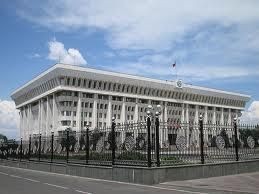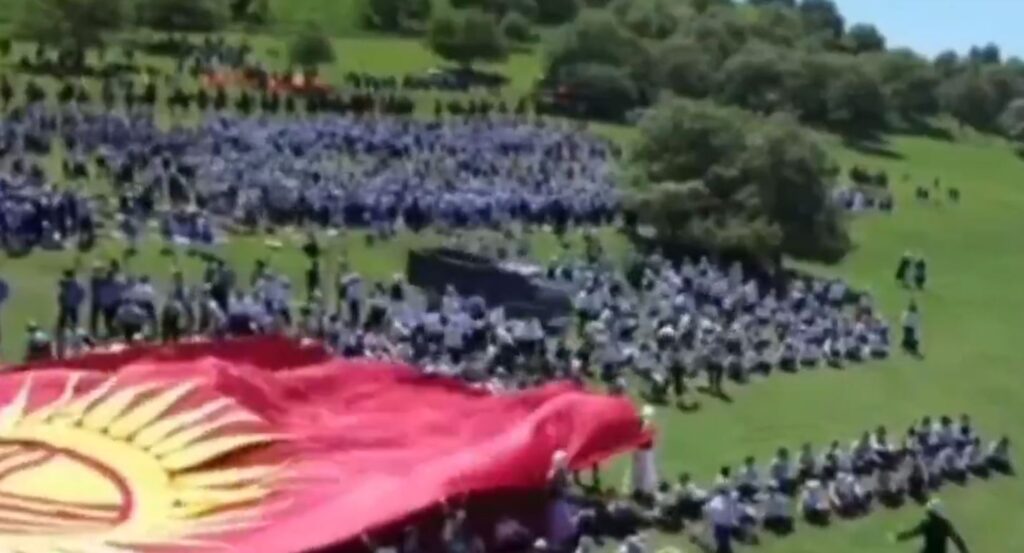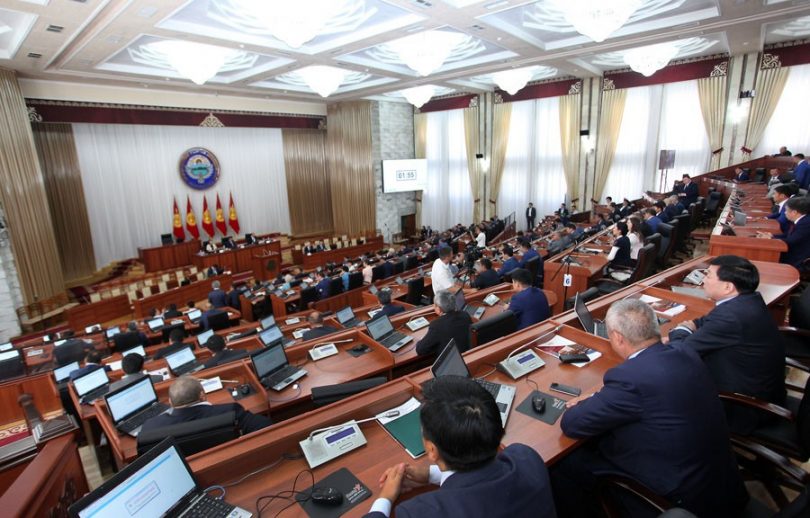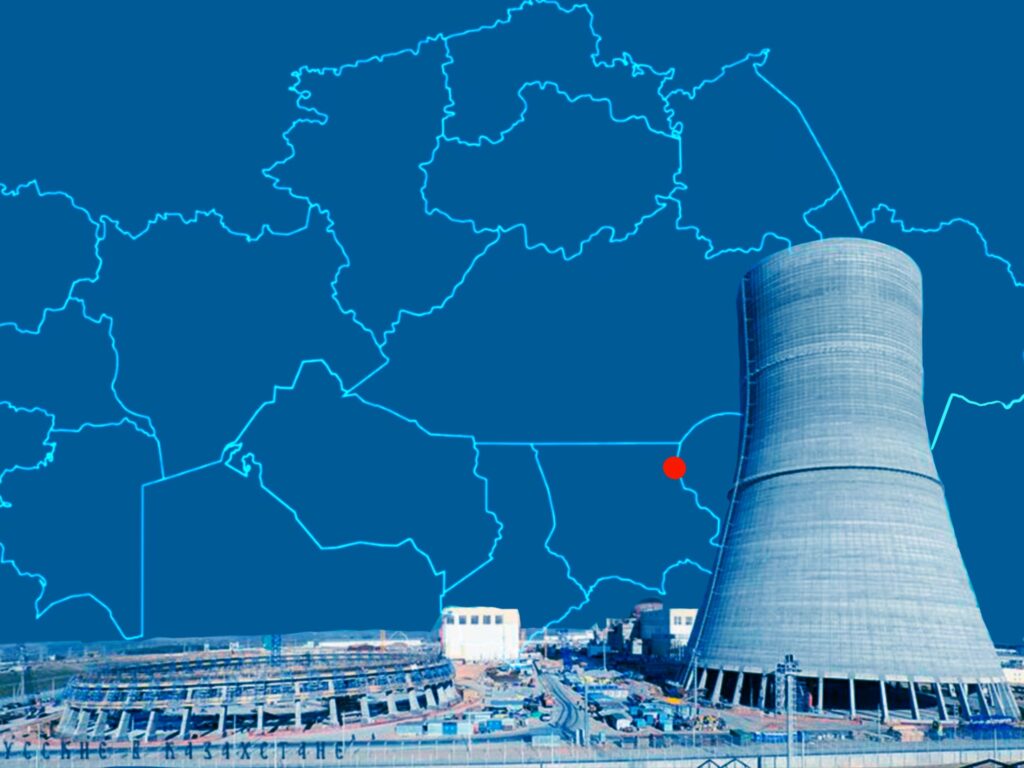LONDON (TCA) — Who is in charge in Kyrgyzstan, and who in case of differences between the “pillars of power” is to have the last word? The Kyrgyz Parliament has recently approved a draft law to hold a nationwide referendum aimed to approve constitutional amendments. Critics inside and outside Parliament accuse the head of state of trying to push for fresh changes in the Constitution in order to shift more powers from Parliament and the Government towards himself. Most surprising is that reading the Constitution leads to the inevitable conclusion that in case he would want to do so he does not need any changes, since the present ambiguity of the Constitution would perfectly allow him to do so within it.
In spring 2010, after a tragic revolution that ousted the President and all his family from Kyrgyzstan, an overwhelming majority of the Kyrgyz population in a referendum approved a new Constitution. The same was praised worldwide for limiting the powers held by the head of state and stipulating a political arena in which Parliament, not the President, had the prerogative to govern the nation. The referendum also included a moratorium on further changes in the Constitution until 2020, with the aim to prevent “revanchist” forces to abuse constitutional disputes for their own good.
Now, the issue is nonetheless back on the agenda in full flood. Many people have been disappointed in the regime of the 3rd Republic, watching the same old faces familiar from the first two back on stage, displaying the same bad habits they did before. Among them is President Almazbek Atambayev, who recently fell out with his former and current peers – naming among them Roza Otunbaeva, Azimbek Beknazarov, Keneshbek Dushebaev, Ismail Isakov, Elmira Ibraimova, Emilbek Kaptagayev, Omurbek Tekebayev, and Bolot Sherniyazov.
The eight figureheads, each of whom had made their careers in the 1st Republic under President Askar Akayev, continued them under the latter’s successor Kurmanbek Bakiyev, though under both former Kyrgyz Presidents they regularly fell out only to reappear on the scene after the “restoration” of 2010 – and fall out once more. In August this year, they took the floor in a series of round-table debates, ending up in a petition demanding respect for the moratorium on the Constitution. In an emotional reaction, Atambayev deviated from the usual patriotic slogans and cheers during his speech on the occasion of the celebration of the quarter-century anniversary of independent Kyrgyzstan on August 31 and called his fellow politicians “dogs that noisily bark and swiftly run off”.
Extensive powers
The funny thing is that the entire debate seems to be largely beside the point. The President of Kyrgyzstan is certainly not short of powers. Article 3 of the current Constitution reads: “The state power in the Kyrgyz Republic shall be based on […] supremacy of the popular power, represented and ensured by the Jogorku Kenesh and the President elected nation-wide.”
In Articles 60-65, the presidential powers are defined as “calling elections” of Parliament (Jogorku Kenesh in Kyrgyz), both periodically as prematurely. The President furthermore “at the proposal of the Judicial Appointments Committee, shall submit to the Jogorku Kenesh candidates for election as judges of the Supreme Court” and “at the proposal of the Council of the Judiciary shall submit to the Jogorku Kenesh the judges to be dismissed from the membership in the Supreme Court”. In the same manner, the President holds the initiative to hire and fire judges, the Prosecutor General, the Governor of the National Bank and a number of other key authorities within the state conglomerate.
The President is also the Commander in Chief of the Armed Forces of the Kyrgyz Republic and chairs the Council of Defense. His powers extend to the establishment of “a state of emergency in individual localities without prior declaration, providing prompt notification to the Jogorku Kenesh. The President shall declare general or partial mobilization; shall announce a state of war in the event of aggression to the Kyrgyz Republic and shall promptly submit this issue for consideration by the Jogorku Kenesh; shall declare martial law in the interests of the defense of the country and the safety of its citizens and shall promptly submit this issue for consideration by the Jogorku Kenesh.”
Who is having the last word?
The key question is where that leaves the government under the authority of Parliament. “The Jogorku Kenesh—the Parliament of the Kyrgyz Republic—shall be the highest representative body exercising legislative power and oversight functions within the limits of its competence,” in the Constitution’s words. “The Jogorku Kenesh upon submission of the President shall elect the judges of the Supreme Court; in cases envisaged by the constitutional law shall dismiss them upon submission of the President.” The same procedure is stipulated for other functions already mentioned – except for military and related ones.
Constitutional shortcomings
There are definitely shortcomings in the Constitution. As a matter of fact no provisions are given in case Parliament rejects a candidate put forward by the President. Also, Parliament may be given notice by the President in case of military or paramilitary action, but what if Parliament does not agree? In all, it looks very much as though not the President, but Parliament and its Government have reasons to complain about the Constitution. In particular, the head of state’s powers related to military and security issues look rather chilling: even in Turkey things are not (yet) quite that bad. As long as all parties agree, you do not even need a Constitution to regulate their respective competence. The crucial question is: once they do not agree, who is having the last word? The current Constitution gives no decisive answer to that question, and it can only be recommended to review and if necessary revise it, including such an answer.









